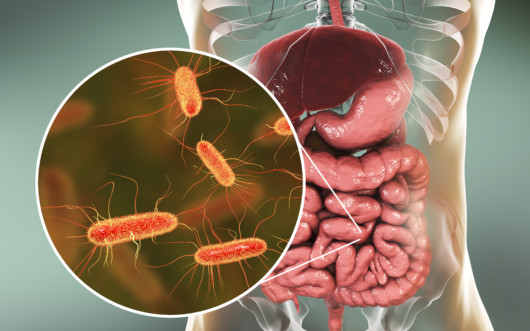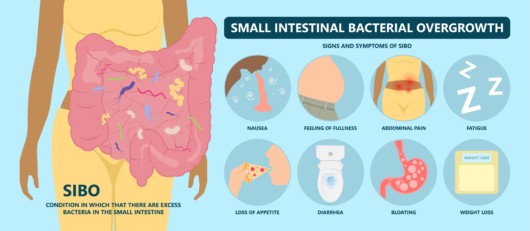Your digestive tract hosts trillions of bacteria, in addition to numerous yeasts and viruses. Expert estimates put the figure at about 100 trillion bacteria for a healthy adult. This is actually more than your total number of cells, approximately 37 trillion. Thus, it’s important to understand the role of these bacteria in your body.
Gut Microbiome Balance
Some of the bacteria in your gut are helpful while others are disease-causing. If the number of the bad bacteria grows beyond a certain point, your gut microbiome becomes unbalanced.
Note that bad bacteria in the gut are brought about by things like antibiotics, fluctuating weight, poor sleep, stress, lack of vitamins and minerals, too much sugar, not eating a wide range of foods, excessive alcohol intake, sedentary lifestyle, and cigarette smoking, among many others.

Are any of these poor habits part of your life? You might have an imbalance in your gut microbiome. To be sure, it’s good to undertake a gut microbiome test. You can order the test kits from gut biome testing companies like My Psomagen. The test results tell you about the diversity of your gut biome and the estimated count of each bacteria species.
Diseases Related to Unhealthy Gut Biome
There are about 300 to 1,000 species of bacteria known to inhabit the human gut. The more species you have living in your gut, the healthier you are. If your gut biome is unhealthy, you risk contracting the following diseases:
-
Diarrhea
The most common symptom of diarrhea is passing loose, watery stool for several consecutive days. Basically, food passes very quickly through the gut without sufficient absorption of water and minerals. Other symptoms include unforeseen urgencies in bowel movement, fever, bloating, nausea, irregular poops, abdominal pain, and blood in stool.
One possible cause of diarrhea is the increased bad bacteria in your gut. You can ingest these bacteria by eating contaminated food and water.
When your gut biome is healthy, any food you eat should undergo complete digestion, a process which takes between six and eight hours. This should result in regular bowel movements, with poop that is solid, smooth, log-shaped, odorless, chocolate brown in color, and sinks to the bottom of the toilet.
-
Acid Reflux
Normally, your stomach is capped by a sheet of muscles that prevent stomach acid from getting into the esophagus. But if your gut biome is unhealthy, chances are high that digestion of the food you eat won’t take place at the required pace.
Such delayed emptying of the stomach causes excessive buildup of gas in the stomach. If you don’t pass this out through flatulence, the other viable alternative is to release the gas through the esophagus. As this happens, some of the stomach acid flows back into your esophagus and causes the burning sensation you know as heartburn.
-
Obesity
Gut bacteria affects how your body converts calories into fats for storage. Scientific studies reveal that obese people have more of Firmicutes bacteria which efficiently convert calories from complex sugars into fat for storage. This makes them gain weight faster than other humans.
But if the quantity of this type of bacteria is decreased in obese people, and other helpful bacteria like Bacteroidetes increased, obese people start losing weight. This is evidence that the right mix of gut biome can help you with weight management, whereas an unhealthy balance increases your risk of obesity.

-
Skin Conditions
Your largest organ is the skin. Scientific research reveals that unhealthy gut biomes are partly responsible for skin conditions like acne, dermatitis, psoriasis, and rosacea. For example, one study found out that about 54% of people with acne had small intestine bacterial overgrowth.
And to add to that, another study confirmed that acne patients can reduce their ailment by up to 40% by simply taking probiotics and building a skin care routine that works.
-
Autoimmune Diseases
Facts have it that your gut is responsible for up to 75% of your body’s immunity. Basically, the gastrointestinal (GI) tract houses the majority of the immune system cells. It’s these cells that sense the presence of opportunistic pathogens and attack them before they make you sick.
When your gut biome is balanced, your immune system remains strong. But when your gut biome is unhealthy, you risk suffering from autoimmune diseases such as diabetes mellitus, interstitial cystitis, hepatitis, psoriasis, vitiligo, pancreatitis, Grave’s disease, endometriosis, Crohn’s disease, and rheumatoid arthritis.
The need to maintain a healthy gut biome can’t be overemphasized. Start with a gut microbiome test to determine the count and diversity of your gut bacteria. This way, you’ll know how to go about boosting the helpful bacteria in your gut, so as to reduce your risk of the above-mentioned diseases.



